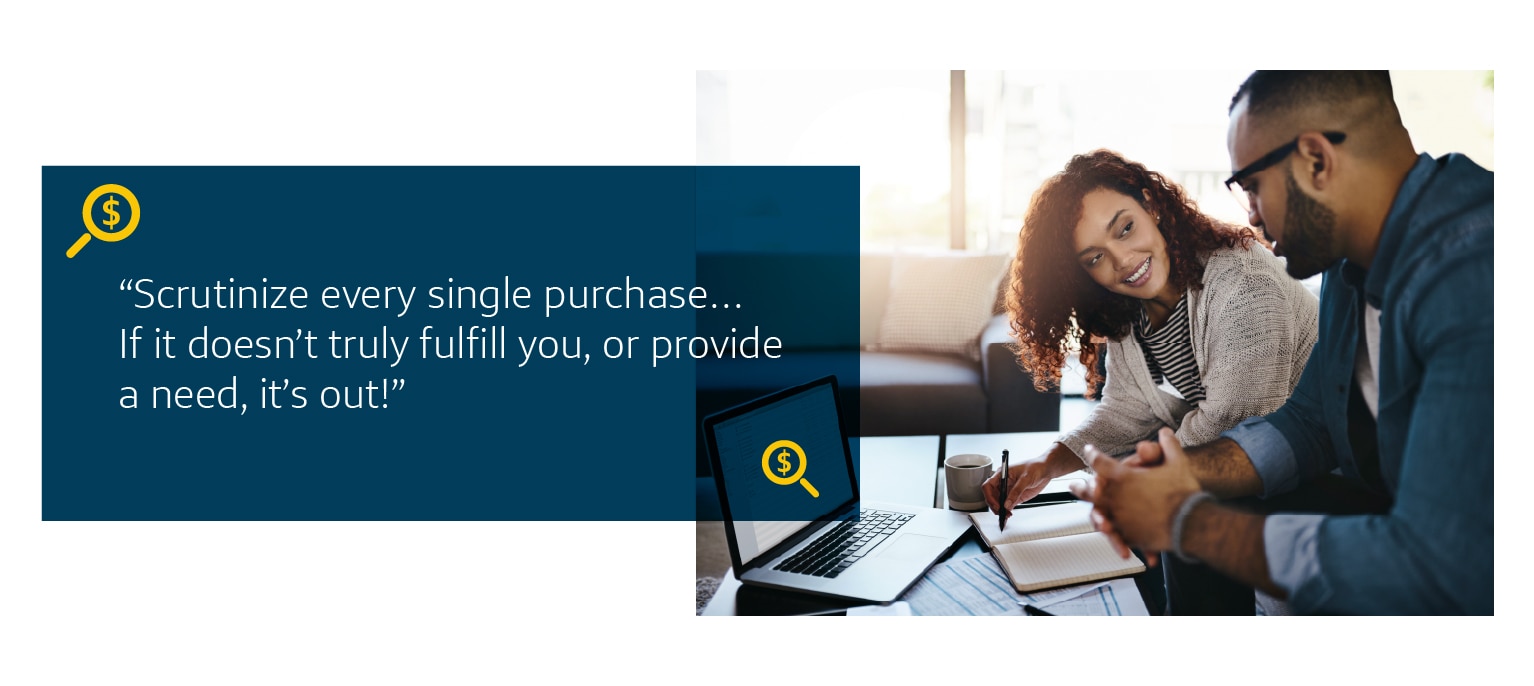Perspectives: Farnoosh Torabi on National Savings Day
Farnoosh Torabi speaks to making saving a priority on Capital One’s National Savings Day
Capital One’s National Savings Day, celebrated yearly on October 12, marks the perfect moment to brush up on your savings skills. Capital One founded this day to empower people to feel more confident about their relationship with money by educating them on how saving money can be a simple act that fits naturally into their lives and existing behaviors.
To commemorate the holiday, we are highlighting the perspective of go-to money expert Farnoosh Torabi on seven smart, easy lessons you can take away today to build up your savings for tomorrow.
 Pick a Goal
Pick a Goal
Whether you’re building up your emergency savings, or planning for a weekend getaway, “it’s important to feel as though you’re moving toward a rewarding finish line,” says Torabi. Taking time to write down your goals is a significant indicator of success. According to a Harvard Business Study, respondents who had written their goals down were three times more likely to achieve them than those who did not. “Having a goal in mind helps to give your savings more meaning. It also keeps you motivated,” she says.
 Automate Your Savings
Automate Your Savings
This is as easy as 1, 2, 3. Take the pain out of saving by setting up an automatic transfer from your checking account to your savings account each time you get paid. Capital One offers the 360 Performance Savings account, a high-yield account where you can earn five times the national average savings rate on your balances. Another bonus? It only takes a few minutes to set up, it’s easy to transfer money between accounts, and you can track your savings goals on-the-go through the mobile app. “Creating a direct, recurring, transfer takes the work out of saving on your own and increases your chances of success,” says Torabi.
Create a Workable Budget
Focus on the necessities first, including food, housing, utilities, insurance, cell phone, Internet, and debt payments. Next, “prioritize personal savings as a ‘necessity,’” says Torabi, especially if you have yet to accumulate six months of your monthly expenses in an emergency account. These necessities will easily account for 50% or more of your take-home pay. Apply any remaining funds to items that will help you to create what Torabi calls “a rich life”, from traveling the world to donating to your favorite causes.
If you want to break down your budget even further, try the “50/20/30” budgeting strategy made popular by U.S. Senator Elizabeth Warren, a former Harvard bankruptcy expert and her daughter, Amelia Warren Tyagi. Here’s how it works: 50% for needs, 20% for savings, and 30% for wants. If your monthly income is $3,000 for example, 50% or $1,500 would go toward rent, food, and bills; 20% or $600 would go toward retirement savings and emergency funds; and 30% or $900 would go toward eating out, clothing, or extracurricular activities for the kids. With a budget in place, Torabi recommends using the support of a free app like Capital One’s mobile app to stay connected to your budget and spending habits while on the go.
Check Out Your Savings Account Offerings
An important attribute for a savings account is accessibility, “meaning you can access your money quickly and conveniently, low-fees or no -fees, and being FDIC-insured,” says Torabi. “After all those boxes are checked off, consider the savings yield.” The average savings account only pays a 0.09% annual percentage yield (APY), according to BankRate, so consider shopping around for a high-yield savings account, some of which can yield nearly 1% annually, with a minimum opening deposit.

Slash Unnecessary Expenses
In order to trim miscellaneous spending that bears no significance on our lives, Torabi suggests downloading the last few bank and credit card statements. “Scrutinize every single purchase,” she says. “If it doesn’t truly fulfill you, or provide a need, it’s out!” Magazines you don’t read or rarely-used apps could be quietly costing you $5 or $10 every month. Another option? Call the customer retention department of your bill provider, and tell them that you’re shopping around and want to find ways to save. “It can lead to instant savings,” she says.
Download Innovative Money Tools
While getting your savings habits in order, life still happens, which means that there may be some big-ticket purchases in your future. If you’re in the market for a car like so many others right now, Torabi suggests checking out Capital One’s Auto Navigator tool, a free digital tool that helps you find your perfect car and get you pre-qualified for financing, all with no impact to your credit score. And speaking of credit scores, you can use CreditWise, a free credit monitoring tool that allows you to explore the potential impact of your financial decisions before you make them.

Enlist an Accountability Partner
“Finally, share your savings goals with others to hold yourself accountable,” says Torabi. Whether it’s your bestie, your work buddy, or your partner, having a financial accountability partner to lean on helps keep us on track when we are tempted, and encourages us along the way. “The act of sharing our savings goals leads to more frequent saving, and ultimately, more money in the bank,” she adds.